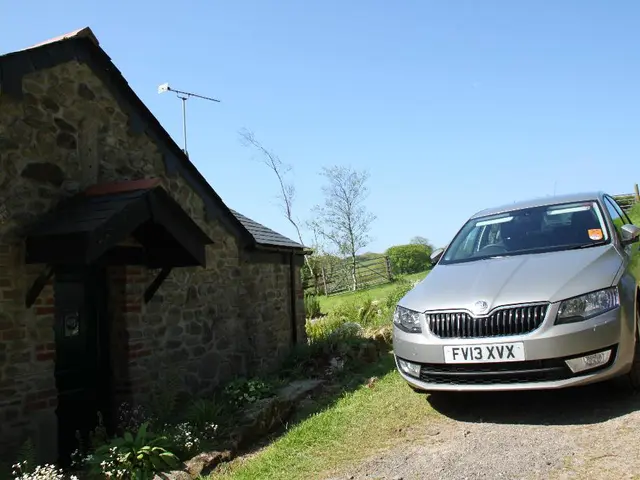Feeling the Heat: California Wildfires Burn a Hole in Hannover Rück and Munich Re's Pockets
A Shift in the Insurance Landscape
Massive US forest fires cause significant financial losses worth billions for Munich
The disastrous wildfires ravaging California in early 2025 have dealt a substantial blow to the two leading German reinsurers, Hannover Rück and Munich Re. The latter, the world's largest reinsurer, estimates the total loss at approximately 1.1 billion Euros, with 800 million euros attributed to reinsurance claims [Source: ntv.de]. Hannover Rück, the world's third-largest reinsurer, reports a staggering 631 million Euro loss from these wildfires alone [Source: mpe/rts].
"These California wildfires are yet another example of how climate change fuels risks associated with extreme weather events," remarked Hannover Rück's CEO, Clemens Jungsthöfel [Source: mpe/rts]. Adding to the woes, a plane crash in Washington, an earthquake in Malaysia, and various other disasters further swelled the expenditure for major calamities to 765 million Euros [Source: mpe/rts].
The Profit Plummet
Despite these substantial losses, pricing negotiations with primary insurers have once again resumed their downward trajectory. The Münchener Rück is anticipating a 2.5% drop in prices in their renewal round in April, while Hannover Rück faces a 2.4% reduction [Source: ntv.de]. Despite the falling revenues, both reinsurers have demonstrated growth in their clientele [Source: ntv.de].
The Münchener Rück's net income plunged nearly in half to 1.09 billion Euro in Q1 2025, falling significantly short of the analysts' expected 1.11 billion Euro [Source: ntv.de]. However, the Munich Concern remains optimistic about achieving a net income of around 6 billion Euro by 2025, citing favourable market conditions and the high-quality portfolio as key factors [Source: ntv.de].
Enrichment Insights:
- Reinsurance Segment Performance: The reinsurance segment's loss ratio has risen dramatically, indicating that major reinsurers like Hannover Rück and Munich Re are likely facing financial strain due to the California wildfires.
- Future Market Climate: The growing frequency and severity of wildfires could lead to higher premiums and reduced coverage availability, affecting not just the companies but also homeowners and businesses. This could further strain the insurance market, as seen in California's reliance on the FAIR Plan for high-risk areas.
- Increased Risk and Frequency: Climate change is expected to increase the frequency and severity of wildfires, thereby elevating the risk landscape for insurers and reinsurers. This trend is likely to continue, posing ongoing challenges for companies like Hannover Rück and Munich Re.
- Adaptation and Innovation: In response to these challenges, reinsurers may need to adapt by developing more sophisticated risk models, enhancing reinsurance capacity, and exploring new products to mitigate the impacts of climate-related disasters.
- Public-Private Collaborations: There is a growing emphasis on public-private collaborations to expand insurance coverage and reduce the protection gap between economic and insured losses. This could involve innovative financial instruments and risk-sharing models.
- The CEO of Hannover Rück, Clemens Jungsthöfel, acknowledged the link between climate change and the escalating risks from extreme weather events, such as wildfires, which have led to significant losses for his company and others in the industry.
- In light of the increasing loss ratio in the reinsurance segment due to events like the California wildfires, it is predicted that the rising frequency and severity of such disasters will lead to higher premiums and potentially reduced coverage availability in the future, affecting both insurers and homeowners/businesses.
- To tackle the challenges posed by these climate-related disasters, reinsurers like Hannover Rück and Munich Re may need to innovate through the development of more advanced risk models, increasing reinsurance capacity, and introducing new products tailored to mitigate climate-change risks, while also exploring collaborative alternatives with public institutions to expand insurance coverage and close the gap between economic and insured losses.








